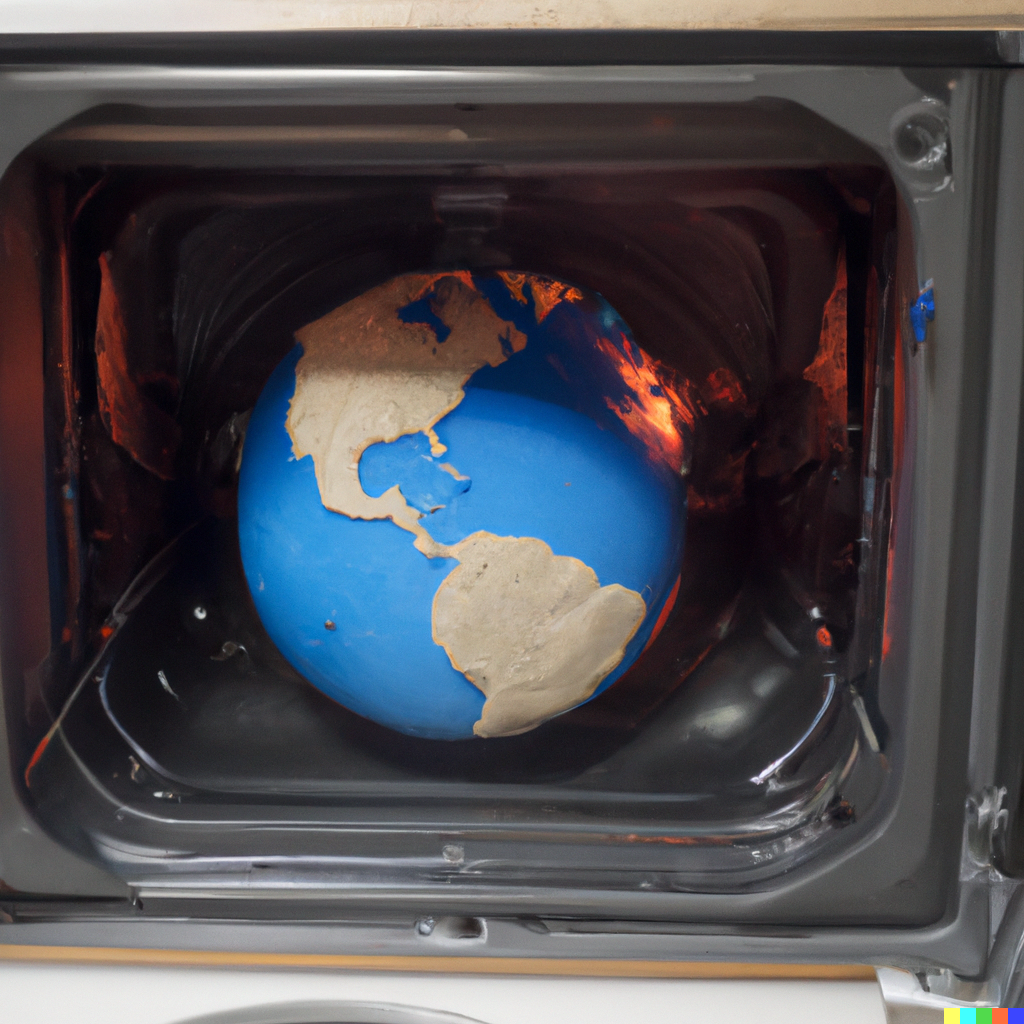Images in this post were created by DALL-E AI Art Generator, through prompts written by Shane Cotee.
Let’s set aside climate change for a minute (not that anyone ever wants to think about it). There are plenty of reasons to consider why the use of fossil fuels is unsustainable and even deadly without getting into the complexity of climate models. Why is this so rarely talked about?

There’s a big elephant in the room: Climate change isn’t the only thing to talk about. It’s one of many. Yet we’re still stuck arguing about how CO2 interacts with water vapor, or how science works at all.

With Roe v. Wade being overturned, I find it more disturbing than ever that the same group of people who identify as “pro-life” also tend to be strong supporters of fossil fuels.
Protecting our “right” or “freedom” to pump gigatons of pollution into the air, water, and dirt somehow became a pillar of popular religions. Strange, isn’t it? I suppose any form of widespread hierarchy has proven to be corruptable. Not that I know the solution, but I think we can all admit there’s a problem. Oh, wait. I tried. We can’t all agree that fossil fuel pollution is unsustainable and deadly; that would be incredibly bad for a small number of people. Nevermind that reducing fossil fuel pollution results in reduced medical problems, death, miscarriages, etc. Yes, believe it or not, pollution such as benzene, sulphur dioxide, ozone, carbon monoxide, etc. might be bad for just about everything. Shocking, I know.

This contradiction of values reveals a glaring cognitive dissonance in the priorities of those clamoring to “save every soul.” If it is righteous to enforce birth, then it should be moreso to prevent suffering and death from preventable pollution.
Yes, science is hard, but there’s no debate among experts about whether lead is safe in gasoline, or whether benzene, carbon monoxide, and sulphur dioxide are toxic to humans and most living things.

Artwork generated by DALL-E + Shane Cotee.
Why is climate change getting all of the attention? Because it’s easier to distract everyone with “debates” about climate change, than to confront the more direct problem of radioactive and deadly toxins in exhaust, coal ash, nano- and micro-plastics, for example.

